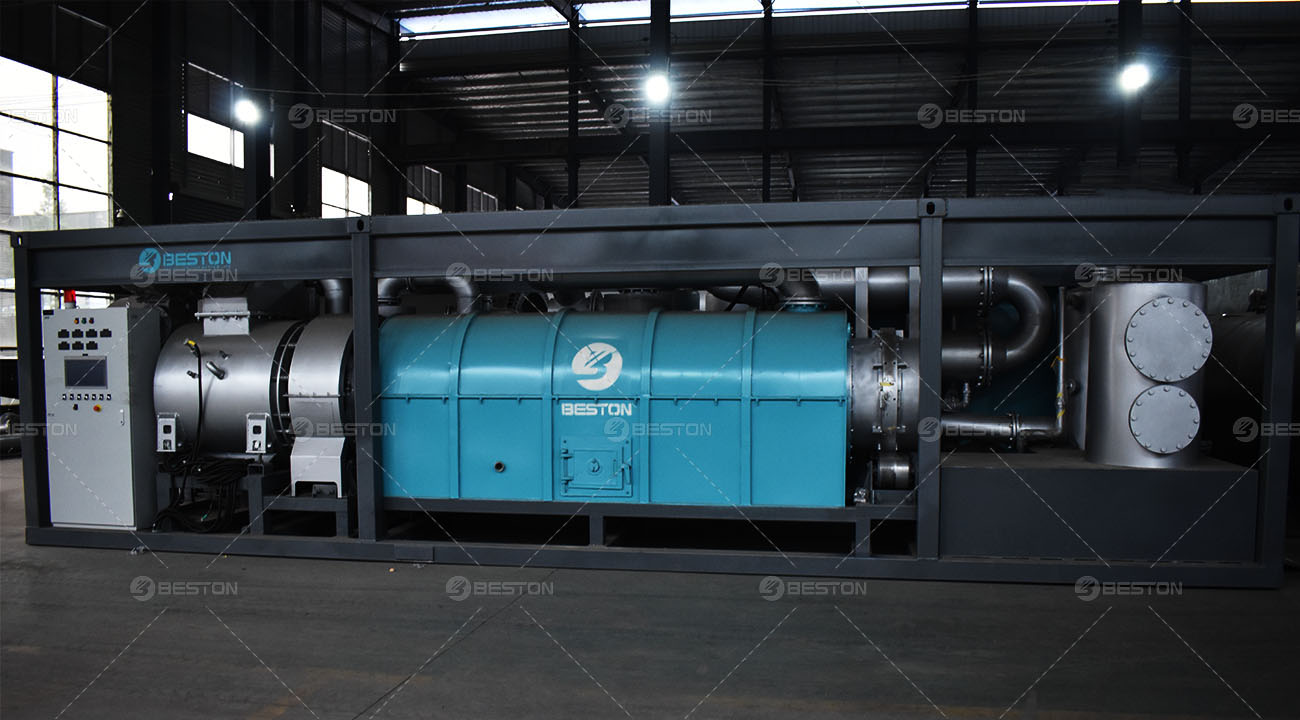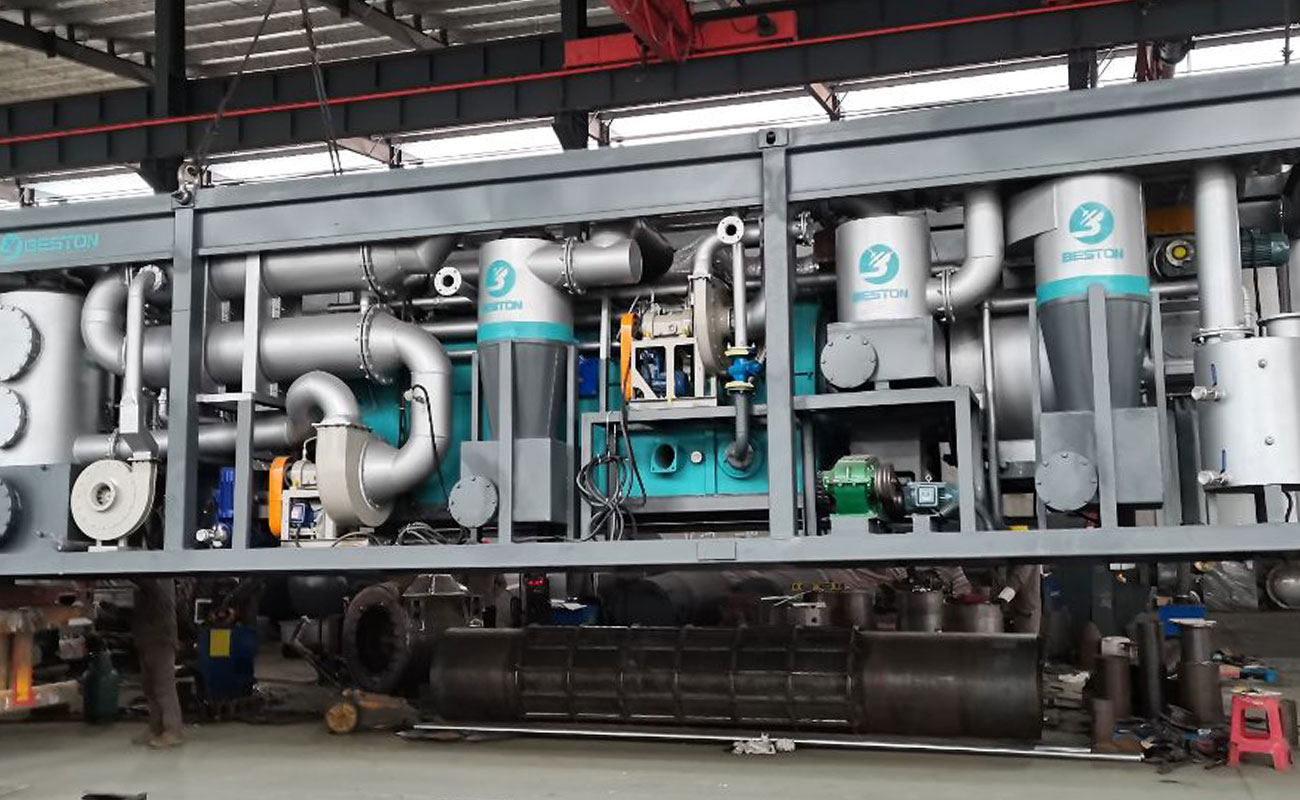In the realm of sustainable agriculture, a fascinating innovation is making its mark: the mobile biochar machine. Biochar, a form of charcoal produced through the pyrolysis or gasification of biomass, has gained recognition for its ability to enhance soil fertility, sequester carbon, and contribute to a more sustainable future. A mobile biochar machine, equipped with specialized components, offers the flexibility to produce biochar on-site, revolutionizing the way we approach agricultural practices. In this article, we delve into the world of mobile biochar machines, exploring their components, advantages, applications, and the challenges they face.

Components of a Mobile Biochar Machine
To understand the inner workings of a mobile biochar machine, we must familiarize ourselves with its key components. At its core, a mobile biochar machine consists of a gasification unit, pyrolysis chamber, filtration and purification system, and a collection and storage system.
The gasification unit plays a crucial role in converting biomass into gas, which is a precursor for biochar production. Through the gasification process, biomass is subjected to high temperatures in an oxygen-limited environment, resulting in the release of volatile gases. These gases are then used as fuel for subsequent stages.
The pyrolysis chamber, another integral component, provides the environment required for the transformation of biomass into biochar. By subjecting biomass to high temperatures in the absence of oxygen, pyrolysis occurs, leading to the decomposition of organic matter and the formation of biochar.
A filtration and purification system ensures the removal of impurities, such as tar and particulate matter, from the produced gas. Different types of filtration systems, including cyclones and electrostatic precipitators, are employed to achieve clean gas output.
Lastly, the collection and storage system allows for the efficient gathering and preservation of biochar. Various methods, such as cyclone separators and bag filters, are used to separate biochar from the gas stream. Once collected, biochar can be stored for later use or transported to desired locations.
Advantages of a Mobile Biochar Machine
The mobility and flexibility offered by this kind of biochar production equipment are among its standout advantages. Unlike traditional stationary biochar production facilities, mobile machines can be transported to different locations, making them ideal for addressing specific agricultural needs. These machines find particular value in remote or inaccessible areas, where transporting biomass to centralized facilities may be impractical or costly.
Moreover, mobile biochar machines enable on-site biochar production, eliminating the need for transportation, which contributes to carbon emissions. By integrating biochar production with local waste management systems, agricultural residues and organic waste can be efficiently converted into valuable biochar, providing an effective solution for biomass utilization and waste reduction.
Furthermore, the application of biochar derived from mobile machines brings forth significant benefits in terms of soil fertility and carbon sequestration. Biochar, when applied to soils, enhances their water-holding capacity, nutrient retention, and microbial activity. This leads to improved crop yields and a reduction in the need for chemical fertilizers. Additionally, biochar’s remarkable ability to sequester carbon in the soil contributes to mitigating climate change by reducing atmospheric greenhouse gas levels.
Applications of Mobile Biochar Machine
The applications of mobile biochar machines span across various sectors, with agriculture and horticulture being the primary beneficiaries. When incorporated into agricultural practices, biochar has demonstrated its potential to enhance soil health, increase crop yields, and reduce the reliance on synthetic fertilizers. Organic farming practices, in particular, benefit from the integration of biochar, promoting sustainable and environmentally friendly approaches to cultivation.
Beyond agriculture, mobile biochar machines have found applications in forestry and land rehabilitation. Biochar has proven instrumental in reforestation efforts, providing an ideal growth medium for young trees and aiding in the restoration of degraded or contaminated soils. By promoting ecosystem regeneration, mobile biochar machines contribute to the conservation of natural resources and the recovery of damaged landscapes.
Additionally, these machines play a crucial role in waste management and biomass utilization. Through the conversion of agricultural residues, such as crop stalks and husks, as well as organic waste from industries or households, biomass pyrolysis plants address the issue of biomass burning, which contributes to air pollution and greenhouse gas emissions. By transforming this biomass into biochar, these machines offer a sustainable alternative, reducing environmental harm and utilizing waste as a valuable resource.
Challenges and Future Developments
While mobile biochar machines offer significant potential, they also face challenges that must be addressed for widespread adoption. Technological advancements are crucial to improve the efficiency and scalability of these machines. Ongoing research focuses on optimizing gasification and pyrolysis processes, exploring innovative heating mechanisms, and integrating automation and remote monitoring systems.
Economic viability and market potential are other areas of consideration. While the cost-effectiveness of mobile biochar machines has improved, further innovation is necessary to make them financially feasible for farmers and businesses. Emerging markets and investment opportunities are also emerging as the potential of biochar gains recognition.
Environmental and regulatory considerations cannot be overlooked. Robust environmental impact assessments and regulations are necessary to ensure the sustainable production and usage of biochar. Certification and standards for biochar quality and application are essential for maintaining credibility and ensuring responsible practices. Particularly, Beston Group can provide you with eco-friendly equipment.
Conclusion
Mobile biochar machines embody the possibilities of sustainable agriculture and environmental conservation. By bringing biochar production to the field, these machines offer flexibility, efficiency, and on-site solutions for agricultural and ecological challenges. With the ability to enhance soil fertility, sequester carbon, and contribute to waste management, mobile biochar machines provide a promising pathway toward a more sustainable future. As technology continues to advance and markets mature, the potential for mobile biochar machines to revolutionize agriculture and environmental stewardship becomes ever more compelling.